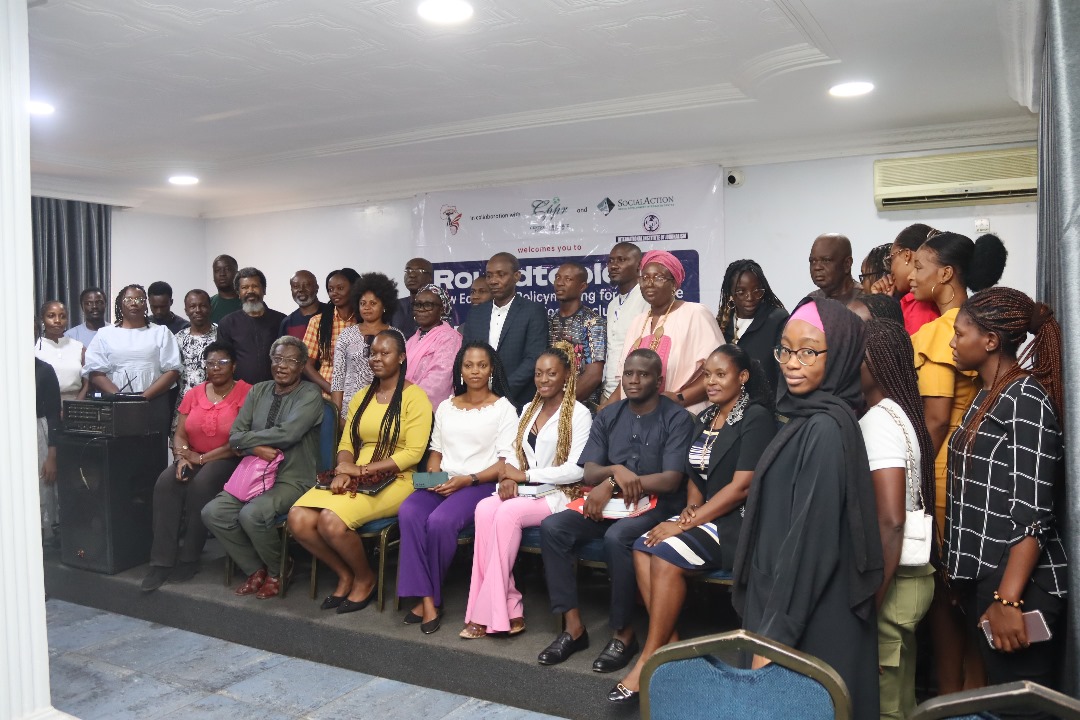By Doyin Ojosipe
Stakeholders have called on President Bola Tinubu to consider reviewing and adopting socio-economic policies that will address the peculiar challenges facing Nigerians. They also urged the government to adopt the open government partnership where citizens would have an input in social and economic models that works for them.
They made the call in Abuja at a roundtable organised by the African Centre Media and Information Literacy (AFRICMIL), in collaboration with Social Development Integrated Centre (Social Action), Centre for Public Policy and Research (CPPR), and the International Institute of Journalism (IIJ).
The roundtable with the theme, New Economic Policymaking for Equitable Growth and Social Inclusion, was sponsored by the Rosa Luxemburg Foundation with the aim of generating discussions around the bad economic state of the country, especially with regard to the removal of fuel subsidy, increased rate of unemployment and rising poverty.
The keynote speaker, Dr Sam Amadi, Director, Abuja School of Social and Political Thoughts, said formulating and making economic decisions should be open for citizen participation as the policies, in the long run, will impact their well-being.
He noted that the abrupt removal of subsidy was not only unwise but has brought untold hardship to Nigerians, affecting every facet of economic development in the country. Amadi stated that the question of what is being subsidized should be considered in light of what drives the economy of a country.
He pointed out that roads which are means of transportation, petrol which is needed by vast majority of economic should be subsidized for higher and better production. He said the harsh policy of government has thrown many into unemployment and majority into penury.
Amadi, an associate professor of law, noted: “We should focus economic development policy around the wellbeing of Nigerian citizens given that the real good economists as three questions: One, what’s happening to poverty, is it reducing or increasing? Two, what happens to employment? Are these policies going to increase employment of Nigerians or are they going to decrease employment?” Three, how inclusive of citizens are the policies made for them?”
The roundtable featured discussions of his paper by three panelists. Dr Emmanuel Shehu, Director, the International Institute of Journalism (IIJ) advised government to consider the wellness of the country’s large human resource factor and only work towards upping their capacity for an improved economy.
He said, “Another fall out is the human factor, the human resource remains top and its obvious that the economic policies do not really consider this factor.”
He advised government to reconsider the issue of palliatives as it has no noticeable effect on the mass populace. He also called on government to review the minimum wage and adopt models that will benefit the majority rather than a few.
Comrade Hauwa Mustapha, policy analyst and social advocate, said Nigeria is yet to break the chain of dependence on Western dictates of what policies to operate.
She said, “In spite of the series of development plans and economic reform policies post-independence, our reality today is a development path that is bedeviled by the fact that though we changed flags and got our own national anthem, we did not break the chain of economic dependence and slavery. This has been the bane of our development plans. Specifically, our economic policies, though aiming for growth, always leave an outcome that bears no correlation between available resources and the poverty statistics.”
On her part, Comrade Ene Obi, the immediate past Country Director of Action Aid, drew attention to the issue of government’s attitude of overlooking the importance of gender inclusion, noting that the right decisions can not be taken on behalf of people who have their peculiar challenges but are not allowed to decide what works for them.
Earlier in his welcome address, Dr Chido Onumah, Coordinator, AFRICMIL, said the event was put together in view of the alarming rate of unemployment and poverty that have severely depressed the capacity of youths to function optimally.
He said, “Nigeria today faces many economic and social headwinds. The country has the highest unemployment rate in the world with 33.3 of its employable population not finding work to earn income. The country has a youth bulge which means that many of its citizens are young persons who cannot find work to earn a living. The National Bureau for Statistics (NBS) reports that about 45% of Nigerians are living in acute income poverty. 143m Nigerians are multi-dimensionally poor, lacking access to basic education and sanitation.”
In her goodwill message, Comrade Agela Odah, the Country Director of Rosa Luxemburg Foundation commended AFRICMIL for organizing the discussion as its importance cannot be over emphasized. She said to the extent policies affect the wellbeing of society, it is necessary that citizens, especially the youth, are encouraged to have a say in how the country is governed.
Goodwill messages were also delivered by IIJ, Social Action, and CPPR.
Amara Michael, a student of the IIJ who participated in the event was glad that her understanding of how economic issues of the country evolved has been broadened. She wished for more robust engagements.



